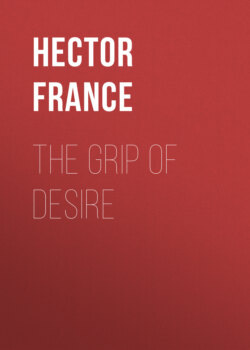Читать книгу The Grip of Desire - Hector France - Страница 8
На сайте Литреса книга снята с продажи.
THE PARSONAGE.
Оглавление"The pretty parsonage encircled with verdure,
With its white pigeons cooing on the roof,
Assumes to the sun a saucy air of sanctity
And permits a smell of cooking to go forth."
CAMILLE DELTHIL (Les Rustiques).
The parsonage is seated on the summit of the hill and overlooks a part of the village and of the plain. The traveller perceives from far its white outline in the midst of a nest of verdure, and feels delighted at the view. Nothing more simple than this peaceful house. A single story above the ground-floor, with four windows from which the panes shine cheerfully in the first rays of the sun, and upon the red-tiled roof two attics with pointed gable. The door, which one reaches by a broad stone stair, is framed by two vines, their vigorous branches stretching up to the side of the windows, yielding to the hand, when September is come, their velvety, ruby bunches. Behind the house, a little garden surrounded by a hedge of green, at once an orchard, flower and kitchen garden.
In front, two hundred paces away, the old church with its stained walls on which the ivy clings, and its pointed belfry. The distance between is partly filled by several rows of lime-trees, which, seen from a distance, give to the parsonage the calm and cheerful look of those peaceful retreats where we sometimes dream of burying our existence. "Is not this the harbour!" says the tempest-beaten way-farer. "Oh! how happy must be the dweller in this calm abode!"
He might enter; he was welcome. The door was open to all, and this house, like that of the wise man, seemed to be of glass.
And all the women, young or old, knew hour by hour how their Curé spent his time, and in spite of all the perseverance which, according to principle, they had applied to discover some mystery in his life or the knot of a secret intrigue, they acknowledged unanimously that no one could give less hold for scandal than he.
Every day, when he had said mass, pruned his trees, watered his flowers, visited some poor or sick person, he shut himself up with his books and lived with them till the evening, until his servant came and said to him, "It is time for supper." Then he rose, ate his supper in silence, after putting aside the portion for the poor, and then returned to his books. That was all his life.
On Sunday, if the weather was fine, he took his breviary, and walked with slow steps along the high-road.
The children would stop their games and run forward to meet him in order to receive a caress from him, while the young girls whispered together and seemed to avoid him. The bolder ones met his gaze with a blush: perhaps they too would have liked, just as the little children, to receive a caress from the handsome Curé of Althausen. But he passed on without ever stopping, answering their timid salutations with an almost frigid gravity.
He acted wisely. He was full of distrust of himself, and kept himself in prudent reserve in face of the enemy. For he knew full well that the enemy was there, in these sweet woman's eyes and those smiles which wished him welcome.
Then the pagan intoxications of the Catholic rites were no more surrounding him to over-excite him and betray the trouble of his heart and the straying of his thoughts, and if he felt affected before the smiles of these marriageable girls, he armed himself with force sufficient to thrust back carefully to his inmost being his boldness and his desires.
It was no more the ardent passionate man who disclosed himself sometimes in rapid moments of forgetfulness, it was the priest austere and calm, the functionary salaried by the State to teach the religion of the State.
